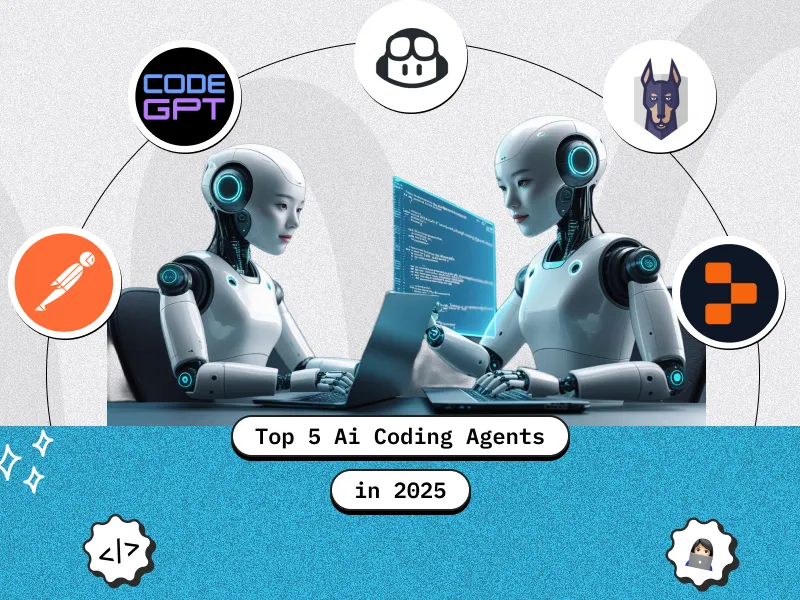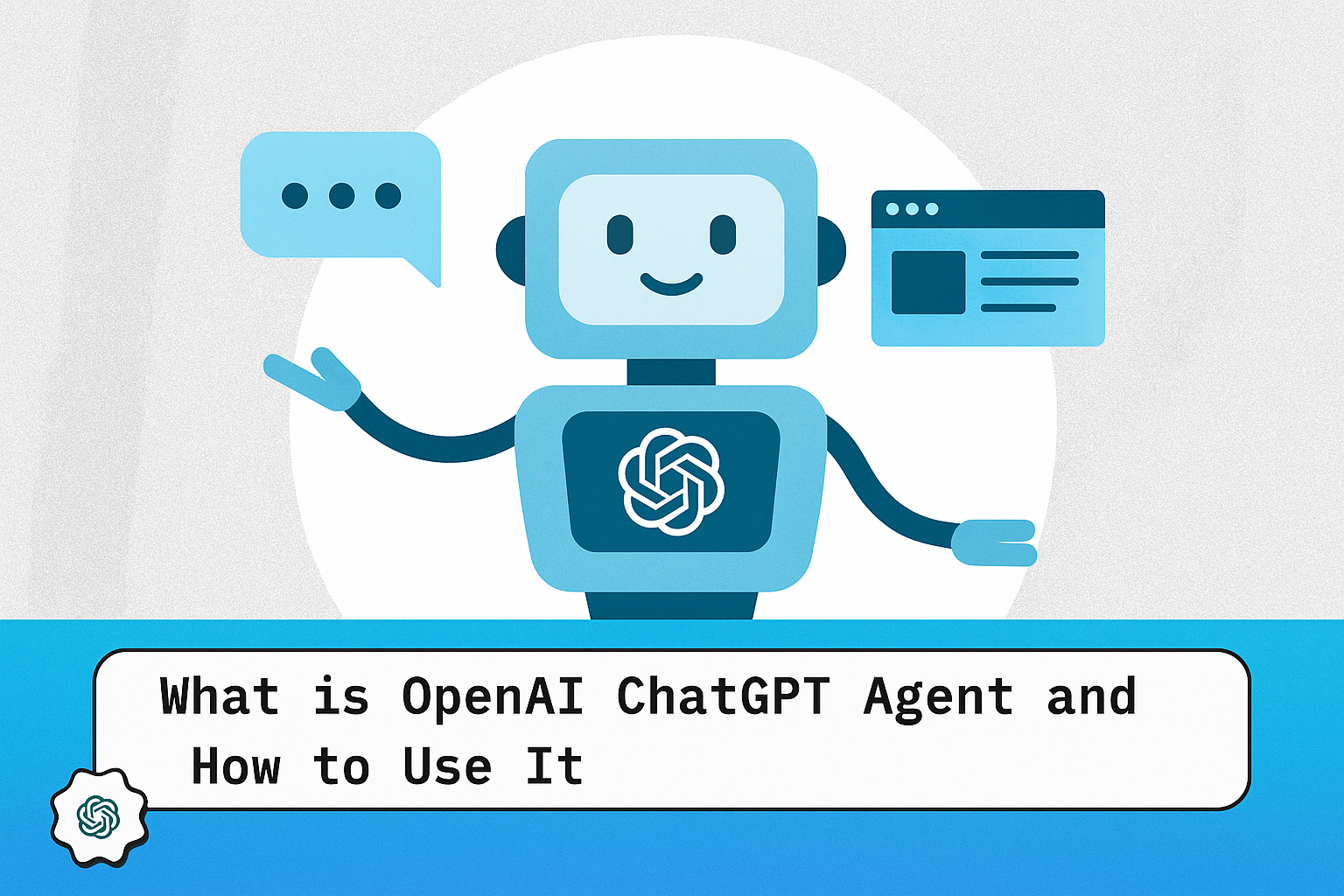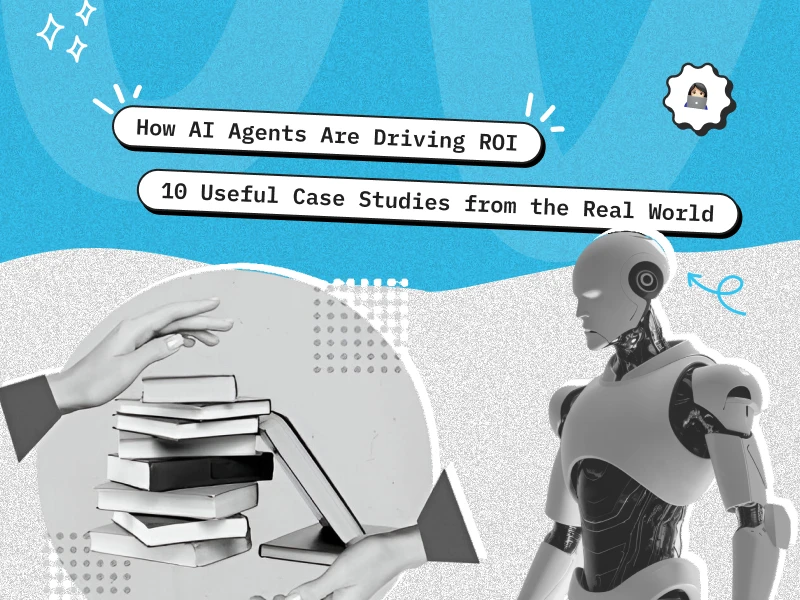TL;DR
- AI coding agents are transforming software development in 2025 by speeding up coding, reducing errors, and improving security.
- CodeGPT excels at natural language-to-code generation, ideal for rapid prototyping.
- Postman AI Agent streamlines API development with automated testing and debugging.
- GitHub Copilot offers enterprise-grade contextual code suggestions and deep repository integration.
- Snyk DeepCode focuses on secure coding, catching vulnerabilities and ensuring compliance.
- Replit AI Agent democratizes coding with project scaffolds, real-time fixes, and built-in deployment.
Introduction
The real estate industry has always thrived on timing, connections, and intuition. But in 2025, those who rely only on gut feeling are already falling behind. With shifting buyer preferences, fluctuating market conditions, and the sheer volume of online property data, real estate agents now need smarter tools to stay competitive.
Enter Artificial Intelligence (AI). Once considered futuristic, AI is now a practical, profit-driving tool for real estate professionals. From lead scoring and personalized marketing to predictive market analysis, AI can help agents identify serious buyers, deliver better client experiences, and ultimately close more deals. Collaborating with an experienced AI Agent Development Company empowers real estate businesses to build tailored AI solutions that automate tasks, boost efficiency, and help agents focus on closing deals faster.
If you’re a real estate agent wondering how AI can fit into your daily workflow — and how it can help you outperform competitors — this blog will give you a detailed roadmap.
Why AI Coding Agents Matter in 2025
Before diving into the tools, it’s worth asking: why now?
- Developer productivity under pressure – Startups and enterprises alike are expected to deliver products faster, and traditional development cycles can’t keep up.
- Rising complexity of software systems – From cloud-native apps to API-driven architectures, modern software requires constant integration and testing.
- Security and compliance requirements – Code vulnerabilities are expensive. AI coding agents trained on millions of repositories can catch flaws instantly.
- Skill gap in tech – The demand for skilled developers continues to outpace supply. AI can act as a bridge, empowering both junior developers and non-technical founders.
Simply put, AI coding agents are not a luxury anymore—they’re becoming a necessity in every software development workflow.
Top 5 AI Coding Agents in 2025
Here’s a deep dive into the five most powerful coding agents that developers and businesses are relying on in 2025. Each one is designed to tackle different aspects of software development—from prototyping to security—and together, they’re reshaping how the world writes code.
1. CodeGPT
What it is:
CodeGPT is a next-generation AI model purpose-built for coding. Unlike generic chatbots that can only answer questions or provide snippets, CodeGPT works as a true co-developer. It translates natural language into high-quality, production-ready code across multiple programming languages.
Key Features:
- Multi-language support: Works seamlessly with Python, Java, JavaScript, C++, and many others. Perfect for polyglot environments where different teams use different stacks.
- Context-aware code generation: Integrated directly into popular IDEs like Visual Studio Code and JetBrains, it doesn’t just provide one-off code suggestions—it understands the project context.
- Proactive debugging: Flags logical errors, missing variables, or deprecated functions before execution, saving countless hours of debugging.
- Rapid prototyping: Generates boilerplate code, API endpoints, or class structures in seconds, helping teams move from idea to working prototype almost instantly.
Best Use Case:
Startups and entrepreneurs building MVPs (Minimum Viable Products). Instead of spending weeks writing the initial code, founders can simply describe functionality in plain English, and CodeGPT delivers a working base they can refine.
Why it stands out:
What makes CodeGPT different is its ability to “remember” project context. If you’re working on a web app, it will adapt its suggestions to match the existing structure, style, and dependencies. Over time, its recommendations become smarter, making it feel less like a tool and more like a junior developer who learns from you.
2. Postman AI Agent
What it is:
Postman has been a household name in API development and testing for years. In 2025, it evolved by introducing its AI-powered coding agent, designed specifically to streamline API design, debugging, and integration.
Key Features:
- Automated test case generation: Reads API documentation and instantly produces test cases for different endpoints.
- Performance optimization: Identifies inefficiencies in request/response cycles, such as unnecessary payloads or slow queries.
- Schema refinement: Recommends schema improvements for scalability and long-term maintainability.
- Error detection and resolution: Spots integration issues and suggests fixes, reducing downtime during development.
Best Use Case:
Perfect for API-first companies where microservices and integrations form the backbone of products. SaaS platforms, fintech solutions, and mobile apps all benefit from a faster, more reliable API development process.
Why it stands out:
Unlike other AI coding agents that focus broadly on code, Postman AI Agent has a laser focus on the API lifecycle. Since APIs power almost every modern application, this specialization makes it invaluable for companies relying on multiple integrations. By automating testing and debugging, Postman cuts down release cycles and ensures smoother deployments.
3. GitHub Copilot Coding Agent
What it is:
GitHub Copilot was one of the first widely adopted AI coding assistants, and in 2025, it has matured into a full-fledged AI coding agent. Built on OpenAI’s models, Copilot now offers far more than autocomplete—it actively collaborates with teams to understand entire repositories and development workflows.
Key Features:
- Contextual intelligence: Provides suggestions based on the entire codebase, not just the open file. This makes it much more accurate in large-scale projects.
- Team adaptation: Learns from team-specific coding styles, ensuring consistency across big projects.
- Bug prevention and documentation: Generates documentation alongside the code and proactively highlights potential bugs.
- Pipeline integration: Works seamlessly with GitHub Actions and CI/CD pipelines, ensuring faster, automated deployments.
Best Use Case:
Enterprises managing massive codebases with distributed teams. It’s especially useful for companies scaling development where consistency and collaboration are critical.
Why it stands out:
Copilot’s strength is its deep integration with GitHub. Since many developers already store and collaborate on code here, it feels like a natural extension of the workflow. Instead of just suggesting code, it understands your repository’s history, coding standards, and patterns, making it one of the most powerful AI coding agents for enterprise environments.
4. Snyk Open Source (DeepCode AI Agent)
What it is:
With the growing importance of cybersecurity, Snyk’s DeepCode AI Agent takes a unique approach: it specializes in secure coding. It scans entire codebases and dependencies for vulnerabilities while suggesting fixes in real time.
Key Features:
- Dependency scanning: Identifies risky open-source packages and libraries.
- Security recommendations: Suggests safer alternatives or applies patches directly.
- Compliance alignment: Reviews code for compliance with regulations like GDPR, HIPAA, and SOC2.
- Continuous learning: Updates its knowledge base by analyzing millions of open-source projects and real-world vulnerabilities.
Best Use Case:
Large enterprises and SaaS providers dealing with sensitive customer data. For fintech, healthcare, or government applications, security is as important as functionality.
Why it stands out:
While most AI coding agents are productivity-focused, Snyk DeepCode is security-first. By embedding itself into the coding process, it ensures vulnerabilities are caught before they reach production. In an era of rising cyberattacks, this makes it a must-have for businesses building secure, compliant applications.
5. Replit AI Agent
What it is:
Replit, already a popular online IDE, has embraced AI fully. Its AI coding agent is designed for accessibility, catering both to professional developers and beginners exploring coding for the first time.
Key Features:
- Live code completion: Offers instant suggestions and bug fixes while writing code.
- Project scaffolding: Generates full-stack templates, including front-end, back-end, and database integration.
- Built-in hosting: Allows developers to write, test, and deploy apps within the Replit ecosystem.
- Collaboration with AI: Acts like a pair programming partner, making real-time contributions.
Best Use Case:
Indie hackers, solo developers, and small startups aiming to launch products quickly without heavy infrastructure investments.
Why it stands out:
Replit democratizes coding. Non-technical founders can describe what they want, and the AI generates a ready-to-run project skeleton. By combining coding, testing, and hosting under one roof, it lowers barriers to entry and empowers creators who otherwise couldn’t afford traditional development resources.
Comparative Table: Top AI Coding Agents 2025
This comparison highlights how each AI coding agent brings unique strengths to software development in 2025. From security to scalability, the right choice depends on your team’s priorities.
| AI Coding Agent | Key Strength | Best For | Unique Edge |
| CodeGPT | Contextual, multi-language code generation | Startups & prototypes | Fast prototyping with natural language |
| Postman AI Agent | API testing & automation | API-first companies | End-to-end API lifecycle optimization |
| GitHub Copilot | Enterprise-grade code suggestions | Large dev teams | Deep GitHub integration & standards learning |
| Snyk DeepCode | Security-first AI assistant | Enterprises | Vulnerability detection & compliance |
| Replit AI Agent | End-to-end coding + deployment | Solo devs & startups | Lowers entry barriers, instant project scaffolds |
The Future of AI Coding Agents
Looking ahead, the evolution of AI coding agents in 2025 is just the beginning. Here are three trends to watch:
- Autonomous coding agents – Future agents won’t just assist but will independently write, test, and deploy entire features while humans supervise.
- Seamless DevOps integration – Expect deeper alignment with CI/CD pipelines, cloud environments, and infrastructure-as-code tools.
- Personalized AI developers – With training on company-specific repositories, coding agents will adopt unique coding styles, making them almost indistinguishable from human teammates.
As AI continues to mature, coding agents will shift from being assistants to being collaborators, taking on 30–50% of the development workload in many organizations.
Conclusion
The rise of AI coding agents is not just a technological upgrade—it’s a fundamental shift in how software is built. Tools like CodeGPT, Postman AI Agent, GitHub Copilot, Snyk DeepCode, and Replit are making coding faster, safer, and more accessible than ever before.
For startups, they mean faster MVP launches. For enterprises, they mean fewer bugs and stronger security. For developers, they unlock more creativity and problem-solving opportunities.
In 2025, businesses that embrace AI-driven development will have a clear competitive edge. If you’re considering leveraging these innovations, partnering with an AI Agent Development Company can help you customize and integrate these tools for your unique business needs.
FAQs
1. What are AI coding agents?
AI coding agents are intelligent software assistants that help developers write, debug, test, and optimize code. Unlike traditional code editors, they use machine learning models trained on massive codebases to provide contextual suggestions, detect bugs, and even automate entire workflows.
2. How do AI coding agents improve developer productivity?
AI coding agents save time by auto-generating boilerplate code, offering real-time bug fixes, and learning from project context. This reduces repetitive tasks and lets developers focus on complex problem-solving and innovation instead of routine coding.
3. Are AI coding agents safe to use for enterprise projects?
Yes, especially when paired with security-focused tools like Snyk DeepCode. Many AI coding agents now include vulnerability detection, compliance checks, and code quality monitoring, making them safer for sensitive or enterprise-grade projects.
4. Can beginners or non-technical founders use AI coding agents?
Absolutely. Platforms like Replit AI Agent allow non-technical users to describe what they want to build in natural language, and the AI generates working code or project scaffolds. This makes coding accessible to startups, solo developers, and innovators without deep technical expertise.
5. Which AI coding agent is best for my business needs?
- For rapid prototyping: CodeGPT.
- For API-heavy products: Postman AI Agent.
- For large teams & enterprises: GitHub Copilot.
- For security-critical apps: Snyk DeepCode.
- For startups & indie developers: Replit AI Agent.











 30 mins free Consulting
30 mins free Consulting 
 12 min read
12 min read 







 Love we get from the world
Love we get from the world 